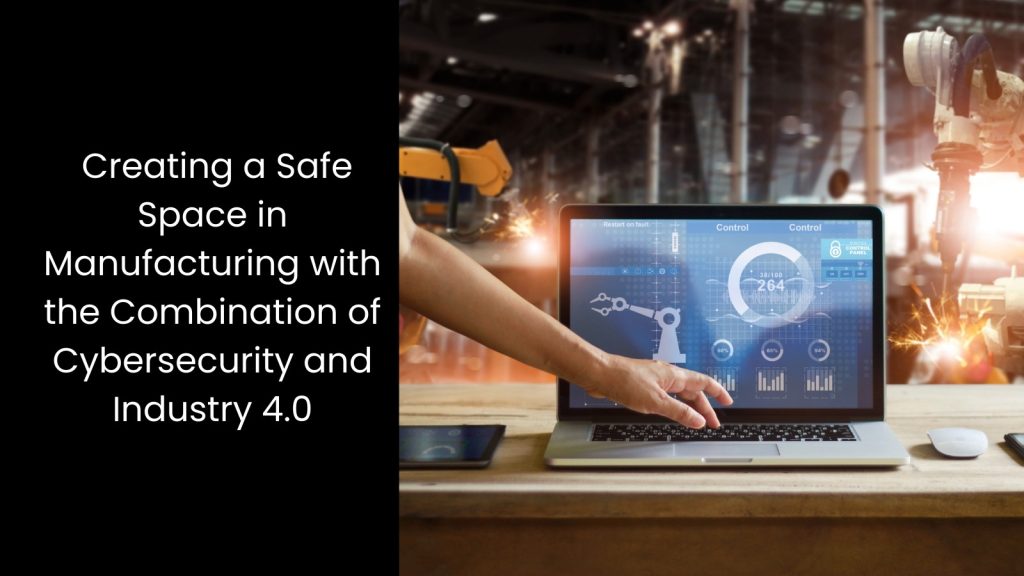This article explores the top benefits of integrating cybersecurity with Industry 4.0 for manufacturing excellence.
Top 7 Benefits of Integrating Cybersecurity with Industry 4.0 for Manufacturing

Reduced Risk of Cyberattacks
You already know that Industry 4.0 connects various devices, machines, and systems to enhance productivity and efficiency, opening up new vulnerabilities. When implementing advanced cybersecurity measures, manufacturers can strengthen their defence systems, making it much harder for cybercriminals to infiltrate networks. These measures include real-time monitoring, advanced encryption, and secure authentication protocols that protect critical data and operations.
As cyberattacks grow more complex, with threats targeting everything from IoT devices to entire networks, cybersecurity solutions become essential in identifying and preventing potential breaches.
With enhanced protection, manufacturers can safeguard their connected systems from malicious activity that could cause significant financial losses, disrupt production, or compromise sensitive information.
Real-Time Threat Detection
The system immediately alerts security teams when a threat is detected, allowing them to respond quickly before the threat causes significant harm. This proactive approach not only helps identify problems early but also minimises downtime, ensuring that production remains uninterrupted.
Enhanced Data Protection
As factories became more connected through smart devices and networks, sensitive data, such as production plans and customer information, became easy targets for hackers. However, by incorporating advanced cybersecurity into Industry 4.0, manufacturers can now protect their data more effectively. They use encryption, secure access controls, and data authentication to ensure that only authorised personnel can access critical information.
These security measures help safeguard sensitive manufacturing data, maintaining its confidentiality and integrity.
Additionally, continuous monitoring tools track all activities within the digital systems, identifying any irregularities that may indicate a breach. This advanced approach ensures that any potential threats are dealt with before they can cause harm, protecting not just the data but also the overall operational stability of the manufacturing process. With enhanced data protection, manufacturers can confidently operate in a digital environment.
Secure Industrial IoT (IIoT)
Integrating cybersecurity with Industry 4.0 addresses this issue by securing IoT devices within the manufacturing ecosystem. Manufacturers implement robust security protocols, such as encryption and secure authentication, to ensure that only authorised users can access and control these devices.
Firewalls and intrusion detection systems actively monitor IoT networks, detecting any suspicious activity or unauthorised access attempts. Since it protects connected devices, cybersecurity prevents hackers from manipulating industrial control systems, which could lead to production disruptions or safety risks. This approach safeguards the entire IoT ecosystem, maintaining the smooth operation of machines and devices.
With enhanced security, manufacturers can trust that their IoT systems are safe from external threats, ensuring both operational stability and data integrity.
Reduced Downtime
In smart factories, machines and systems are interconnected, and any cyberattack or security breach can cause system failures, halting operations. Cybersecurity measures, such as real-time threat detection and automated responses, continuously monitor all devices and networks to spot potential risks early.
When a threat is detected, these systems immediately neutralise it, reducing the chances of an outage or delay. Additionally, cybersecurity integrates with predictive maintenance tools to identify weaknesses in machinery or software before they lead to failures.
When addressing vulnerabilities proactively, manufacturers can avoid the costly and time-consuming downtime caused by cyberattacks, ensuring that production processes run smoothly without interruptions.
This way, companies not only protect their data but also maintain a steady flow of operations, boosting productivity and reducing the financial impact of unexpected disruptions.
Protecting Intellectual Property
If the authorities can integrate cybersecurity, they can protect their IP more effectively. Strong security measures, such as encryption, secure access controls, and regular audits, ensure that only authorised personnel can access confidential data. Intrusion detection systems continuously monitor the network for any suspicious activities that could signal an attempted breach. This constant vigilance prevents unauthorised access and safeguards valuable IPs from being stolen or misused.
You know that protecting intellectual property is crucial because losing it can lead to financial losses, damage to a company’s reputation, and a loss of competitive advantage. With cybersecurity in place, manufacturers can safeguard their innovations, maintain their market position, and drive progress without fear of compromising their intellectual assets.
Cost Savings
By addressing potential threats before they escalate, companies avoid the high costs associated with data breaches, system repairs, and the loss of production time. Additionally, businesses reduce the likelihood of reputational damage arising from publicised security breaches, which could drive customers away.
This is when proactive cybersecurity prevents operational inefficiencies by ensuring that digital systems and machinery run smoothly without interruption. As a result, manufacturers not only save on the direct costs of cyberattacks but also reduce the indirect costs, such as downtime and reputational harm, making cybersecurity investments essential for long-term financial stability.
Cerexio Enterprise Integrator for Secured Manufacturing Framework

Cerexio ‘Enterprise Integrator’ enhances a secured manufacturing framework by combining advanced cybersecurity measures with Industry 4.0 capabilities. It integrates smart devices, machines, and data systems while ensuring robust protection against cyber threats. With features like real-time monitoring, encryption, and secure access controls, the Cerexio solution helps manufacturers safeguard sensitive data, prevent breaches, and maintain continuous, efficient production operations.
Creating a Safe Space in Manufacturing with the Combination of Cybersecurity and Industry 4.0

You cannot deny the fact that the fusion of Industry 4.0 and cybersecurity ushers in a new era of secure manufacturing. The best thing to do is to leverage advanced technologies and robust security protocols, and with the right strategies, you can drive sustainable growth and innovation.
